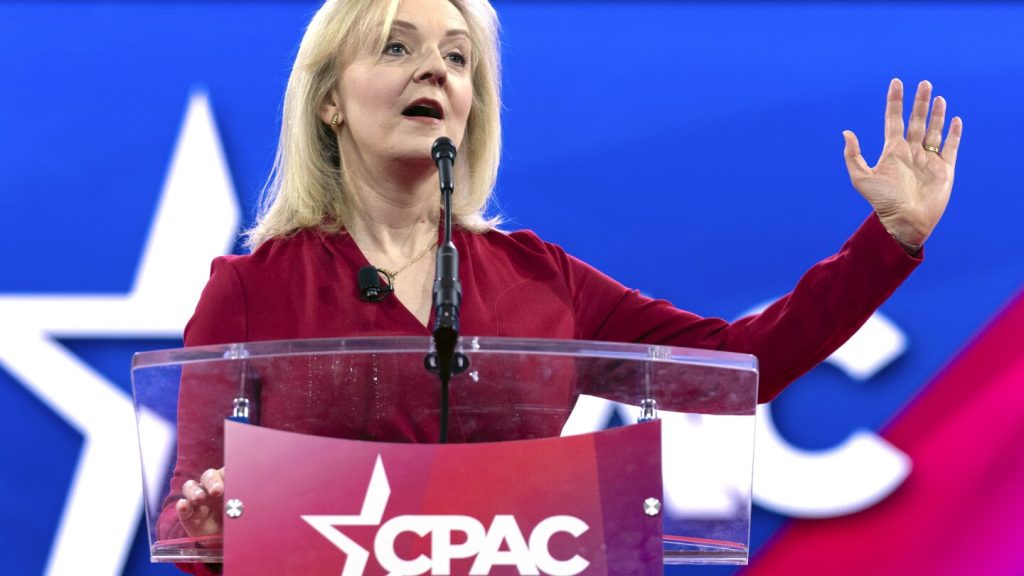Liz Truss, Britain’s shortest-serving prime minister, is now speaking out and defending her economic record. In her interviews and new book, she blames the “deep state,” technocrats, the establishment, civil servants, and the Bank of England for her downfall. Truss has broken tradition by not keeping quiet after leaving office and is actively defending her actions and criticizing her critics. She presents her ideas in her book, such as abolishing the United Nations and endorsing Donald Trump for reelection, diverging from the norm of British politicians staying out of U.S. elections.
Truss’s brief tenure as prime minister was marked by chaos in the financial markets and turmoil within her party. Her plans to spur economic growth with tax cuts and deregulation backfired when a budget containing massive unfunded tax cuts caused instability in the markets, drove up government borrowing costs, and weakened the pound. The Bank of England had to intervene to prevent a wider economic meltdown, and many individuals still face higher mortgage payments due to increased interest rates. Truss resigned in October 2022 and was replaced by Rishi Sunak, her former rival, barely two months after taking office.
Despite her resignation, Truss continues to blame others for the economic challenges she caused. She points fingers at the central bank for keeping interest rates too low and the Office for Budget Responsibility for failing to provide adequate warnings about risks. She calls for the abolition of the OBR and demands the resignation of the Bank of England governor. Opposition parties view Truss’s behavior with incredulity and suggest that she is worsened the economic situation for families dealing with soaring mortgage costs.
In her recent media appearances, Truss has criticized what she calls extremist environmentalist dogma and wokeism. She believes that Britain’s institutions have been influenced by leftist ideologies and has proposed radical changes, such as abolishing the U.K.’s Supreme Court and letting the government appoint the judiciary. Truss also calls for the abolition of Britain’s Human Rights Act and urges the country to leave the European Convention on Human Rights. Her views extend to the United Nations, which she believes is detrimental, particularly its Security Council.
Despite her controversial stance and criticisms, Truss remains a sitting lawmaker and plans to run for reelection in the upcoming national election. She is confident of holding onto her seat, even if the Conservative Party faces defeat in the polls. Truss does not rule out running for the party leadership again in the future, stating that she has unfinished business. Her bold and unapologetic approach has positioned her as a divisive figure within the Conservative Party and British politics more broadly. Time will tell how her outspoken views and actions will resonate with the electorate and impact the political landscape.


